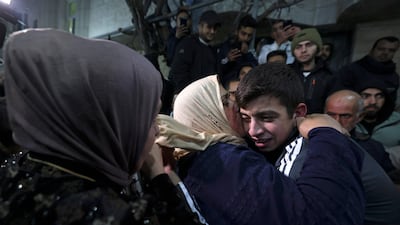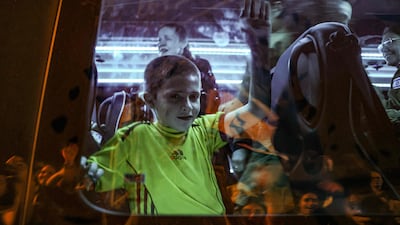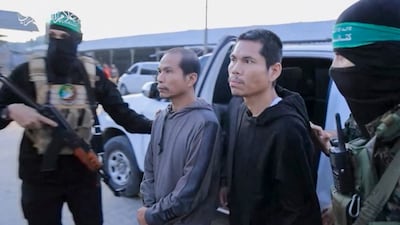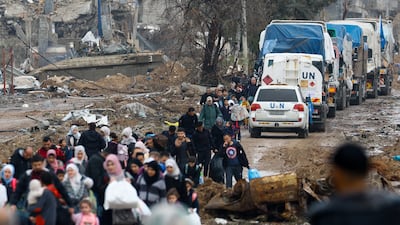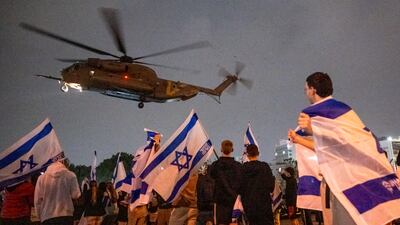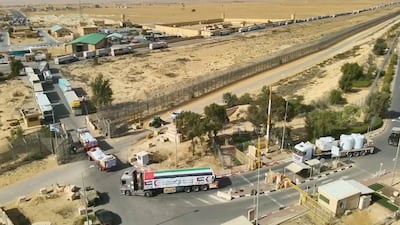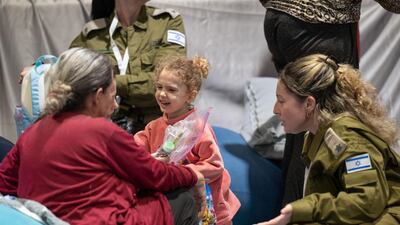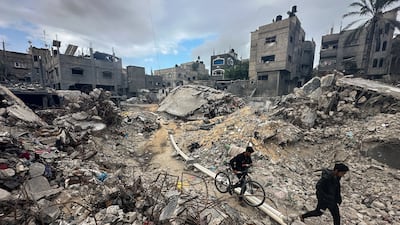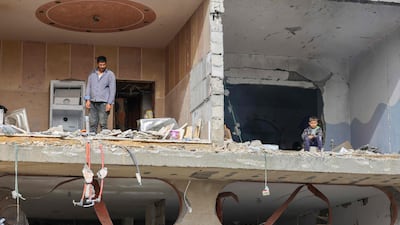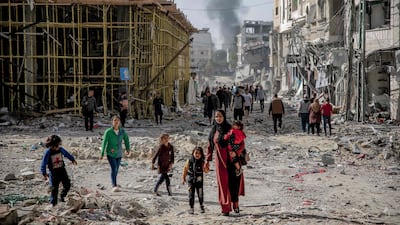Live updates: Follow the latest news on Israel-Gaza
On a hilltop overlooking the Gaza Strip, the ferocity of Israel's resumed offensive against Hamas was plain to see on Friday, with thick black smoke rising from crumpled buildings across Beit Hanoun in the north-eastern corner of the Palestinian territory.
The thumps of explosions were felt every minute or so as a group of journalists watched the destruction unfold from the relative safety of the Israeli town of Sderot, located two kilometres away.
Minutes after Israel announced the week-long truce with Hamas was over, Israeli fighter jets hit targets across the Gaza Strip and health authorities there reported dozens of people had been killed or wounded.
Israeli government spokesman Eylon Levy accused Hamas of breaking the ceasefire, claiming it had fired a rocket from Gaza while the truce was still in effect.
“That rocket fire has since intensified, with sirens across southern Israel, including in communities that are still under mandatory evacuation orders,” he told reporters.
Sderot is the target of frequent rocket attacks from Gaza. On October 7 it was stormed by Hamas gunmen who overran the local police station, killing dozens of police officers inside and civilians on the streets. Today, the evacuated town is eerily quiet, with only a tiny number of residents remaining.
One local policeman said he remained alert to the threat of Hamas militants attempting another sneak attack on the town, though that seemed unlikely given that the Gaza Strip is now surrounded by tens of thousands of Israeli soldiers.
The resumption of the war was met with mixed feelings in Israel. Many people had grown accustomed to the nightly releases of hostages held by Hamas and the hope more would be freed.
In Tel Aviv, about 75km north of Sderot, families gathered on a plaza that locals have dubbed Hostages Square in front of the city's Museum of Art. Hamas seized about 240 hostages on October 7, releasing more than 100 of them in the week of the truce in return for hundreds of Palestinian prisoners and detainees.
Tel Aviv resident Shirly Solomon said the truce should continue to allow for the release of more hostages, but she also wanted Hamas to know that Israel would not back down.
“We feel a lot of tension in the air,” she told The National.
“My wish is the hostages come home and then we continue the [military] operation. We need to fight back. October 7 was the second Holocaust, it’s not something to be quiet about.”
Yael Tal, a swimming coach who trains the daughter of 70-year-old hostage Ofra Keider, expressed similar views.
“We want everybody out, and then the war should start again. We have to get rid of Hamas, we can’t live next door to them. It can’t happen again, we can’t live under the threat of such atrocities,” she said.
In Israel, the thrust of public discussion about the war is focused on the collective trauma of October 7 and the desire to get the hostages out. The soaring death toll in Gaza, where more than 15,000 people have reportedly been killed in Israel's air-and-ground offensive, is seldom mentioned.
“I’m miserable. You get back the hostages and I’m happy for a moment. But I am grieving,” said Ayelet Haephrati, a drummer from Tel Mond in central Israel.
“Fighting is losing innocent people. The situation is a losing situation.”

